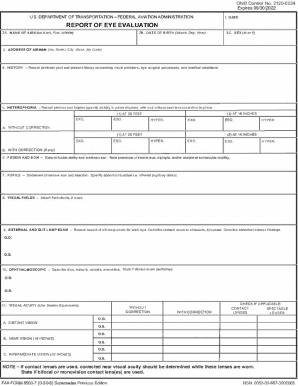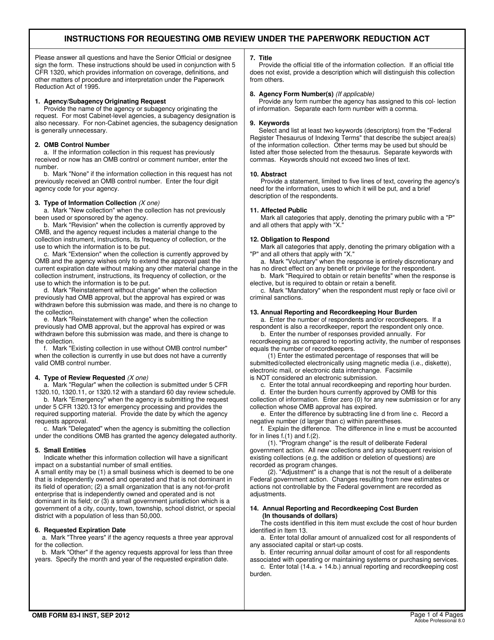Paperwork Reduction Act: Does It Apply to States?

The Paperwork Reduction Act (PRA) of 1980 is a pivotal piece of U.S. federal legislation aimed at reducing the burden of federal paperwork and information collection requests on individuals, businesses, and state governments. While the PRA primarily targets federal agencies, its implications stretch far beyond just reducing federal paperwork. This comprehensive blog post delves into whether and how the Paperwork Reduction Act applies to state governments.
What is the Paperwork Reduction Act?

Enacted by Congress, the PRA imposes various obligations on federal agencies to:
- Minimize the paperwork burden: Ensure that only necessary information is collected, and collection methods are as non-intrusive as possible.
- Standardize information collection: Develop uniform systems for collecting, maintaining, and disseminating information.
- Engage with the public: Require agencies to seek public input on proposed information collection before implementing them.
PRA and State Governments: The Direct Impact

While the PRA is a federal law, its scope on state governments is often misunderstood. Here are key points regarding the direct impact:
- The PRA itself does not legally bind state governments. They are not required by law to adhere to the PRA’s guidelines in their internal information collection processes.
- However, information requests from federal agencies directed at state governments must comply with the PRA. This means that if a federal agency seeks information from a state, it must follow the PRA’s procedures and ensure the collection request is justified, necessary, and approved by the Office of Management and Budget (OMB).
Indirect Influence on State Governments

Even though state governments are not subject to the PRA:
- State Legislation Mirroring: Some states have developed their own laws or regulations that mirror aspects of the PRA, reducing unnecessary paperwork within state operations.
- Intergovernmental Agreements: States often engage in agreements with federal agencies where federal funding is tied to compliance with federal paperwork requirements, indirectly enforcing PRA-like standards.
How States Benefit from the PRA

The PRA benefits state governments in several ways:
- Reduced Paperwork Burden: States receive less paperwork from federal agencies since these agencies must streamline and justify their information collection requests.
- Cost Savings: With federal agencies mandated to minimize unnecessary information requests, states can experience reductions in administrative costs.
- Improved Coordination: The PRA fosters better coordination between state and federal agencies, as both must comply with similar information collection practices when dealing with one another.
✅ Note: While the PRA does not apply directly to state governments, states can adopt similar principles to enhance efficiency in their operations.
Challenges and Criticisms

Despite its benefits, there are challenges and criticisms:
- Federal Overreach: Some state officials argue that the PRA gives the federal government excessive control over state operations when it comes to intergovernmental information requests.
- Unintended Consequences: The PRA might inadvertently slow down the information flow between state and federal agencies, leading to inefficiencies in public service delivery.
- Non-uniform Application: Due to its federal nature, the PRA’s application can be inconsistent across states, creating a patchwork of compliance standards.
| Aspect | Federal Agency | State Government |
|---|---|---|
| Binding Obligations | Yes | No |
| Information Collection Requests | Must Comply with PRA | Affected by Federal Requests |
| Public Engagement | Required | Not Required, but Can Be Implemented |
| Potential Cost Savings | Yes, through streamlined processes | Yes, indirectly through reduced federal requests |

✅ Note: The PRA has shaped state-federal relationships and information sharing, but state governments are not legally required to follow the Act's procedures.
The Role of OMB in PRA Compliance

The Office of Management and Budget (OMB) plays a crucial role in:
- Approving and reviewing information collection requests from federal agencies.
- Ensuring that federal agencies adhere to the PRA’s requirements.
- Oversight of information requests between federal agencies and state governments.
Future of PRA and State Interactions

Looking forward, several scenarios might shape the future relationship between the PRA and state governments:
- State Adoption: More states might consider adopting similar principles to reduce administrative burdens internally.
- Interagency Collaboration: Enhanced cooperation between state and federal agencies might lead to more harmonized information collection standards.
- Technology Integration: The integration of advanced data collection methods could simplify the process, potentially leading to a rethink of PRA’s role in the digital age.
✅ Note: The PRA's influence on states may evolve with technology and changes in federal policy, affecting how state governments manage their information collection processes.
In Conclusion

The Paperwork Reduction Act, while aimed at reducing the federal government’s paperwork burden, has an indirect impact on state governments. While they are not legally bound by the PRA, state governments benefit from reduced paperwork, streamlined processes, and cost savings when dealing with federal requests. State governments can also choose to adopt similar principles to enhance their own administrative efficiency. However, the relationship between the PRA and state governments is nuanced, requiring a balance between federal oversight and state autonomy in managing information collection.
Does the PRA apply to information requests from state governments to individuals?

+
No, the PRA only applies to federal agencies. State governments can develop their own regulations or follow their state laws regarding information collection from individuals.
How can states benefit from adopting PRA-like principles?

+
Adopting similar principles can streamline state processes, reduce administrative overhead, and potentially save costs by minimizing unnecessary information requests.
Can state governments challenge federal information requests under the PRA?

+
Yes, states can challenge information requests from federal agencies if they believe these requests are excessive or unnecessary, but they must do so through the PRA’s established procedures.



